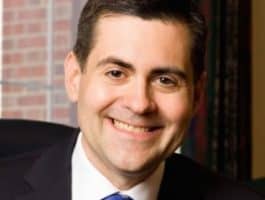
Onward
How do we engage with the culture around us? Author Russell Moore describes what he sees happening in the culture and explains what moms and dads can do to address it. Russell advises engaging the culture with kindness and love, remembering that the same people who disagree with us now may one day be our brothers and sisters in Christ.
Show Notes
About the Host
About the Guest
-
How do we engage with the culture around us? Author Russell Moore describes what he sees happening in the culture and explains what moms and dads can do to address it. Russell advises engaging the culture with kindness and love, remembering that the same people who disagree with us now may one day be our brothers and sisters in Christ.
-
Dave and Ann Wilson
Dave and Ann Wilson are hosts of FamilyLife Today®, FamilyLife’s nationally-syndicated radio program. Dave and Ann have been married for more than 38 years and have spent the last 33 teaching and mentoring couples and parents across the country. They have been featured speakers at FamilyLife’s Weekend to Remember® marriage getaway since 1993 and have also hosted their own marriage conferences across the country. Cofounders of Kensington Church—a national, multicampus church that hosts more than 14,000 visitors every weekend—the Wilsons are the creative force behind DVD teaching series Rock Your Marriage and The Survival Guide To Parenting, as well as authors of the recently released book Vertical Marriage (Zondervan, 2019). Dave is a graduate of the International School of Theology, where he received a Master of Divinity degree. A Ball State University Hall of Fame quarterback, Dave served the Detroit Lions as chaplain for 33 years. Ann attended the University of Kentucky. She has been active alongside Dave in ministry as a speaker, writer, small-group leader, and mentor to countless wives of professional athletes. The Wilsons live in the Detroit area. They have three grown sons, CJ, Austin, and Cody, three daughters-in-law, and a growing number of grandchildren.
-

Russell Moore
Russell Moore is President of the Ethics & Religious Liberty Commission of the Southern Baptist Convention. Prior to his election to this role in 2013, Moore served as provost and dean of The Southern Baptist Theological Seminary, where he also taught as professor of theology and ethics. A widely-sought cultural commentator, Dr. Moore has been recognized by a number of influential organizations. The Wall Street Journal has called him “vigorous, cheerful, and fiercely articulate” whi...more
Russell Moore describes what he sees happening in the culture and explains what moms and dads can do to address it. Russell advises engaging the culture with kindness and love.
Bob: Russell Moore says we have to make sure we care more about representing Jesus correctly than about what others think.
Russell: Sometimes, people say, “How do we talk about these issues without being seen as bigots?” My response to that is: “I don’t care whether or not I’m seen as a bigot. I care about whether I am a bigot.” So I have to say, “Am I speaking to people with a biblical framework, with an understanding of love for that person?”
Bob: This is FamilyLife Today for Friday, January 8th. Our host is the President of FamilyLife®, Dennis Rainey, and I’m Bob Lepine. We’re going to spend time today talking about what it means to stand firm in the faith in a culture that’s built on shifting sand. Stay tuned.
And welcome to FamilyLife Today. Thanks for joining us. I hope the conversation we’ve been having this week—about where the culture is, where we are, how we engage with the culture—I hope husbands and wives and moms and dads are finding this helpful because I think a lot of us are aware of the fact that it’s a new day /
1:00
/ aware of the fact that things we used to take for granted we can no longer take for granted. We had better be proactive in thinking about how we are going to engage with the culture around us.
Dennis: Especially, as married couples and as families, who are on a mission, we need to know what we’re up against, and not be afraid of it, but know what it is God’s Word says about it and “How should we handle it?” We’ve got a good friend, who’s back with us in the studio again. Russell Moore joins us—Russell— good to have you.
Russell: Good to be with you.
Dennis: You’ve written a book called Onward: Engaging the Culture without Losing the Gospel. I don’t know if you would describe yourself as a social scientist of sorts but one who looks at society and culture through the lens of theology and the Bible. I would certainly speak of you in that way. You seem to have a keen eye for what’s taking place, and you’ve written about it in your book.
2:00
Explain to us and just give us a high fly-by of what you see changing in our culture today and what moms and dads, husbands and wives, single people ought to know, as they confront this personally.
Russell: Well the main reason why I wrote Onward is because I see a lot of Christians, who are hand wringing. They are acting as though we are in a very difficult situation that no one’s ever been in before, and the future is so dark and bleak. I don’t think the future is dark and bleak at all. As a matter of fact, I think the future is very bright for the church. A lot of that has to do with what’s happening in American culture right now.
I don’t think the shaking of American culture is a sign that God is giving up on the church. I think it may well be a sign that God is rescuing the church from some things that the church had been involved in that we should never have been involved in. So it’s making a very clear distinction between the church and the world—what we have happening, right now, with the decline of cultural Christianity / with the way that Christianity is becoming stranger to the people around us.
3:00
So when we’re talking about the things that we believe—before, we could kind of assume that people aspired to the kind of marriage and family, for instance, that we would talk about. Even if they didn’t live up to it, that’s what they wanted. Their parents had that sort of life, and they knew that they eventually wanted to get there. We could come in and say, “Jesus is the way you get there.” Now, not only do they often disagree with us on those things, they can’t even understand them at all. That’s not a new place for the church to be—that’s where the church was in Corinth, in Ephesus, in Jerusalem; and it’s where the church is in many places around the world right now.
We have to be the people of God, and to understand that Jesus is sovereign, and He’s given us what we need in order to be on mission in this culture.
Bob: We, earlier this week, asked Larry Osborne if he felt like we were in post-Christian America—that we’ve seen what’s happened in Europe. I don’t know if I think we’d say the church in Europe is in a great place too.
4:00
Maybe you’d say the church everywhere is in a great place because it’s the church—and no matter what your cultural environment is—being in the church is a good place. Do you think we’re in the same place today that Europe was 30/40 years ago? Are we headed in that direction?
Russell: No, I don’t. I don’t think we’re in post-Christian America because that assumes that we previously had a Christian America. I think that we are going to continue to have a secularizing in American culture and, at the same time, a vibrant Christian presence in American culture.
Part of that has to do with the fact that, in America, we have a revitalizing of Christianity through immigrant populations. Some of the most vibrant forces for Christianization that we have in this country are coming from people who don’t speak English as a first language. I don’t think we’re going in the direction of the European church; but what we need to do is—to be connected with the places where God is working, vibrantly, around the world right now—including Africa, Asia, Latin American, other places.
5:00
Dennis: One of the things that you do, Russell—and I’ve got to give the tip of the hat to you—is you have a camera put right on your face. This is a sound-bite culture; many of these issues we’re talking about from the Bible are not sound-bite answers.
Russell: Right.
Dennis: They’re built upon a system of belief that the Scripture teaches that really can’t be done in 30 seconds—at least, do them justice. I’d like to know, “What have you learned about relating to those between the ages of 18 and 35?” Wall Street Journal says that about 75 percent of them believe same-sex marriage and homosexuality is okay.
What have you learned in relating to this group of people because they’re not starting where we start in the Bible? They don’t have the same premise about male and female and about marriage as we have. Their antennas are up, and they are ready to call you or me a bigot if we say anything otherwise.
6:00
Russell: Sometimes, people say, “How do we talk about these issues without being seen as bigots?” My response to that is: “I don’t care whether or not I’m seen as a bigot. I care about whether I am a bigot.” So I have to say, “Am I speaking to people with a biblical framework, with an understanding of love for that person?”
A lot of times, what people do is—they take a caricature of what Christianity is about and try to define it over against the caricature. I see our calling as to say: “No, no, no. I’m not talking about the 1980’s TV evangelist that you want to talk about. I’m not talking about your dad that you have a problem with. Let’s deal with Jesus. Let’s deal with what the Scripture teaches.”
Then understand that, often, these issues are far more complicated than you think. Often, we have more agreement than you think we have—for instance, when it comes to the sound-bite debates over marriage: “Love is love,” “marriage equality”—no one really believes that.
7:00
We all believe there’s some limit on what ought to be defined as a marriage. We just disagree on where that ought to be. So that can start a conversation. I think the main thing is to recognize you’re not going to be able, in almost any situation, to win the argument in the moment that you’re having the argument.
What you want to do is bear witness to what Scripture teaches and then to have a long on-going conversation with someone—if you can—in their lives. Even if not, you want to plant some seeds that will then cause that person to, at a moment of crisis, think about those things, as the prodigal son does—the famine comes, he comes to himself, and he remembers the words that were spoken before, and he knows where to go back.
Dennis: He remembered the kindness that he’d been given.
Russell: Yes; exactly.
Dennis: When you were growing up, did you have any homosexual friends? Did you have a face to homosexuality like young people do today?
8:00
Russell: Not in the same direction. There were people, who were kind of “confirmed bachelors” in the neighborhood—everybody kind of knew what was going on—but it wasn’t the same situation that kids have today.
I think that’s why we have to be really careful in discipleship and teaching to make sure that we’re not just dealing with cultural stereotypes / we’re not just dealing with culture war issues—that we’re talking about the fact that the way human sin works is—that you have people, who are good in many ways, and who are fallen, as we all are.
One of the things that many of the people who disagree with this think—I had a lesbian activist say to me, one time, “When people say that we’re sinning, you’re dehumanizing us.” Then I say: “Okay; then you don’t understand what we mean when we say, ‘sin,’ because that’s not dehumanizing—that’s universalizing in our way of seeing things. Now it’s our fault that you hear that as dehumanizing because that means that we’re not defining what we mean and teaching you Romans 1-3 in all of its fullness.
9:00
“But that’s what we mean, and that’s what this is about.”
We’ve got to teach our kids that from the very beginning: “This is what sin means as sin manifests itself in different ways with different people.”
Dennis: What you’re mentioning here is something you talk about in the book, which is convictional kindness. You’re talking about parents, men and women, husbands and wives, single people—who have convictions of what is right and what is wrong from the Bible—but while possessing them and holding firmly to them, they also hold firmly to a viewpoint of love and the dignity and image of God that resides in every person, who’s been created.
Russell: That’s right. I think that, when we say what Jesus has given us to say, we have to say it the way He says it. I think the kindness in Scripture—what Paul says to Timothy in 2 Timothy, Chapter 2—that is the way that spiritual warfare is done. The voice of Christ breaks through the bondages that we all have, left to ourselves.
Sometimes, people will think, “Well, convictional kindness will mean that I’ll avoid controversy.”
10:00
Kindness in Scripture never avoids controversy. As a matter of fact, if you’re showing biblical kindness—which is not niceness, it’s not politeness—it’s actively seeking the good of the other—you’re going to have more controversy because some people are going to hate the conviction / some people are going to hate the kindness.
So Jesus gets hits from one side for eating with tax collectors at Zacchaeus’ house / he gets hit from another for calling those tax collectors to repentance; but He’s carrying out His mission—and that’s the mission He’s given to us.
Dennis: You know the woman, who’s caught in adultery, and the Pharisees that had surrounded her—they actually had brought her to Jesus and were like: “Oh, we’re going to trap Him. Now what’s he going to do with this?” Jesus, of course, first moved to protect the woman—He asked the Pharisees, “Who among you is without sin?” And one by one, they dropped the stones and left. Then he began to talk to the woman about her real need.
11:00
He ultimately directed her—He said, “Go and sin no more.” And then at the end of His life, Jesus ended up dying for that woman.
To me, as I’m going to school on Jesus Christ—which I think all of us need to be—we need to be opening the Gospels and looking at how He handled broken people, of which we are one / how He’s dealt with us. We have to take the lessons—of learning how to protect people, learning how to instruct people, how to speak the truth to people with kindness and going the extra mile with them—to make sure they’ve heard the truth about the gospel.
Russell: One of the things that comes to my mind, often, is the way Jesus treated the woman at the well—John 4:16: “Jesus says to her, ‘Woman, go get your husband.’” He’s going there—the place she doesn’t want Him to address / her issue of sexual immorality. He knows about it / He’s not shocked by it—He speaks to it directly and then He says—“And come here.”
12:00
It’s a call to repentance and a call to invitation. He’s doing both at the same time.
You know, we’re not always going to do that perfectly—that’s what it means for us to be sinners / we have to repent of this. Sometimes, we’re going to be so heavy on the conviction that we forget to be kind. Sometimes, we’re going to be heavy on the kindness that we aren’t as clear about our convictions. But that’s our goal—is to make sure that we are speaking everything that Jesus has given us to say, and that we’re recognizing that we’re speaking to people who are alienated from God, and that we are not intimidated by them because we know that that’s what’s happening in people’s lives—is that people are scared of the presence of God.
I mean, left to ourselves, all of us are doing what Adam and Eve were doing in the Garden—hiding from the voice of God. This is a painful reality for people outside of Christ. So we continue to speak, and we do so with patience and endurance.
13:00
Dennis: Jesus’ convictional kindness that he gave that woman at the well ultimately resulted in her conversion—so much so that she went and got the whole village and brought them out to meet Christ. To me, that just speaks of how kind He was / how loving He was in pointing out her sin—but also inviting her to believe.
Russell: That’s another key point—is we have to recognize people, who disagree with us—including the people who hate us the most—may well be our future brothers and sisters in Christ.
Dennis: Well, you point out the future Billy Graham—in your book, don’t you talk about—
Russell: Yes—might be drunk right now. Saul of Tarsus never went to Vacation Bible School. [Laughter] He’s not a likely character to be leading the Christian church. Many of the people, who are the most hostile to us right now, in an instant, they could be turned around.
The way God works—He doesn’t say: “Okay; well, you scandalous, previous sinner, you sit back there in the back. We’ll let you go to heaven, but you’ll keep your mouth shut.” Typically, He puts those people into leadership and turns the world and the church upside down through them.
14:00
That ought to give us a sense of perspective that: “I’m dealing with somebody who’s, not my ultimate enemy right now—just might be the person who leads my grandchildren and great grandchildren to faith in Christ.”
Bob: At the end of the day, and we’ve said this in a variety of ways throughout this week—but at the end of the day, we have to care more about the Kingdom than we do about anything else in life. That will reprioritize our interactions with everybody / the values that we have. We have to have a missional mindset—as individuals / as families—that should order how we engage with culture more than our safety, our security, our ease, our comfort; right?
Russell: Yes, and we ought to do it with confidence. I mean, one of the reasons why Christians are often so hand-wringing and one of the reasons Christians are, sometimes, so mean is because they’re scared. If you’re scared, that’s going to lead to meanness because you think somebody’s taking something away from you.
15:00
But if you really have confidence that the gospel is the power of God unto salvation, and you really have confidence that Jesus will build His church and the gates of hell will not prevail against it, then you’re going to have a kind of tranquility as you’re facing the world ahead of you.
You have people, who are saying that Christians are on the wrong side of history on these issues of sexual ethics. We ought to recognize we’ve been on the wrong side of history since A.D. 33.
Bob: Right.
Russell: This is where Christianity always has been. The Roman Empire used to be the right side of history—it’s gone.
Bob: Yes; yes.
Russell: Jesus is feeling fine. [Laughter] So we ought to signal that sense of confidence that we’re representing Him, and we’re not the people who are somehow afraid that you’re going to cause us to go extinct.
Bob: I asked Larry Osborne, when he was with us earlier this week—and by the way, we’re talking to Dr. Russell Moore, who has written the book, Onward. I asked Larry if he would bake the cake for the gay wedding or if he’d take pictures for the gay wedding. Would you?
16:00
Russell: Well, what I would want to do is to say those situations are going to depend largely on whether somebody is implicated in actually participating in the ceremony. What I would want to say is that is actually the wrong question, when it comes to freedom of conscience, because there are all kinds of Christians, who are saying, “Well I would have no problem baking a cake for this wedding, so you do it.” Romans 14 says—
Bob: —“If it’s sin for you…”
Russell: Yes, that’s exactly right. So we shouldn’t be binding one another’s consciences on that and saying, “Well you need to go and do this activity,” when that person says, “I’m using my creative gifts in a way that’s going to implicate me in this.” And we sure don’t need the state coming in and saying, “We’re going to force you to do this over against conscience, causing you to sin.”
Bob: Okay; so, would you take the pictures?
Russell: I would take the pictures if I was there to do a journalistic sort of recording of the event. I would not take the pictures the way that most wedding photographers do.
Bob: —to memorialize it.
Russell: Yes. I mean, they come in and say, “You stand here, and kiss at this point, and then walk at this point.”
17:00
Many wedding photographers are using their creative gifts in order to make this event appear a certain way, and to be a certain way, and to be celebrated in a certain way. I couldn’t do that.
Dennis: You have a section in your book about family and mission. I want you to comment on this because I really like what you had to say about: “Families need to mix it up and get involved, get some dirt underneath their fingernails to go near some of the tough issues of our day—the orphan, women who have been abused, poverty, go near the poor.” Comment on that if you would because it seems, to me, as we take on these weighty issues in the culture that are being bantered back and forth, we lose some of our credibility if we haven’t been there—
Russell: Absolutely.
Dennis: —helping people who will never be able to repay us.
Russell: When we’re doing that / when we’re helping those who are vulnerable and marginalized, we’re taking a long-term view of the universe.
18:00
That’s why James says, in James 2, that you shouldn’t make distinctions between the rich and the poor within the church because “Don’t you know God has chosen the poor to be rich in faith and heirs of the kingdom?”
When we’re honoring that child with Down syndrome, for instance, we’re not having a charity project here—we’re recognizing: “This is a future ruler of the universe / a joint-heir with Christ.” When we’re ministering to that woman, who’s in crisis / who’s been in an abusive relationship—she’s not a ministry project for us—she is an image-bearer of Jesus Himself.
One of the reasons I think Christians don’t do that—they prefer to just think about it in terms of issues rather than getting involved—is because there’s risk involved. It’s one thing to care about the poor as an issue but, when you’re actually involved with someone in poverty, that’s a real relationship. That gets messy and complex. It is one thing to care about orphan care / it’s another to welcome an orphan into your home, who has all sorts of issues, perhaps, bringing in there. It’s one thing to care about the life issue—
19:00
—it’s another thing to bring a woman, who’s pregnant, into your home, who doesn’t have anywhere else to go.
That means we’re going to risk, and we’re going to find ourselves getting hurt sometimes; but it’s worth it! That’s what love always does.
Dennis: And we don’t have to know all the answers.
Russell: We don’t have to know all the answers.
Dennis: You’re going to go near situations, as a family, where you’re going to confront things you’re not going to know what to do. What I hear you saying is: “That’s okay!”
Russell: “That’s okay.”
Dennis: “We don’t have to always know.”
Russell: “We don’t have to always know.” That’s why we have a body of Christ, where the weak bear up the strong. All of us are strong in some areas and all of us are weak in some areas.
Dennis: It’s also why we have prayer.
Russell: Absolutely.
Dennis: God puts us in situations, where He demands that we seek Him. In fact, I have to ask you this one other question, as I’m talking about families. Bob, you said we wake up and we find, as a family, that we’re in this horrific culture today—that we start railing about it, pounding the table about it, and complaining to God about where He put us.
20:00
Russell: Yes; yes.
Dennis: This is where He put your family.
Russell: God decided when you’d be born. God decided when you would be born again. When we sit around, railing about the culture, what we’re saying to God is, “We deserve a better mission field than the one You gave us.” But if God put us here, then that means God has given us every resource we need in order to bear witness to Christ.
Dennis: Russell, I just want you to know—you’ve become a good friend. You have an important section in your book, Onward, about the family and why the family is so important in speaking the truth to a generation and to the next. I just appreciate you sticking to following Christ—both as a husband/as a father—but also as one who’s a warrior for Christ.
I just appreciate the diplomacy you bring as an ambassador. I always am amazed when you show up in the Wall Street Journal, or in one of the major news magazines, or TV shows. You really have done a great job of maneuvering in some really very difficult situations.
21:00
I mean, to have a camera put on your face and be asked a question that is impossible to answer in a brief period of time—you do it with grace and dignity. I just want to say, “Thanks,” on behalf of our listeners, who should pray for you and for your influence, as you go forward. I pray God grants you favor and increases your borders.
Russell: Thank you. I really am grateful for that.
Bob: I’ve got to say, too, I hope a lot of our listeners will get a copy of your book, Onward, and get a highlighter and start reading through it, and underlining, and reading at the dinner table a few of the quotes that they pull out from your book. I really do think that this is a book that parents ought to be talking together with one another about and they ought to be engaging with their children about the themes in this book. Again, the title of the book is Onward: Engaging the Culture without Losing the Gospel.
22:00
It’s by Russell Moore. We’ve got it in our FamilyLife Today Resource Center. The website is FamilyLifeToday.com; or you can call 1-800-”F” as in family, “L” as in life, and then the word, “TODAY.”
We’ve also talked this week about Larry Osborne’s book, Thriving in Babylon—another book that I think is very helpful on this same subject. Let me encourage listeners—maybe it’s one / maybe it’s both of these books that you want to get a copy of. But I think this is a subject that deserves some deeper thought and some deeper consideration.
You know, one of the things that I’m starting to realize is that, as the culture shifts away from what we understand is a biblical view of Christianity, the number of people, who are speaking on behalf of what the Scriptures teach is starting to fade as well. I just have to say how grateful we are, here at FamilyLife, that our listeners believe that this ministry matters—
23:00
—that talking about what the Bible teaches on these subjects, even in the face of a culture that’s going a different direction, that it’s important that we continue to speak out. I know that they believe that because, at the end of 2015, we heard from a number of listeners, who said: “We’re with you. We believe in what you’re doing”; and they made a yearend donation to support this ministry.
And the reality is—without those donations, FamilyLife Today could not exist. So we are grateful for the support of our listeners / grateful for your participation in this ministry—thankful for the Legacy Partners, who give month in and month out, and help provide the financial backbone for what’s happening, here at FamilyLife.
Of course, any time you’re interested in helping with a donation, we’d love to hear from you. You can go to FamilyLifeToday.com to make a donation online. Or you can call 1-800-FL-TODAY—make your donation over the phone. Or you can mail your donation to FamilyLife Today at PO Box 7111, Little Rock, AR; and our zip code is 72223.
24:00
And with that, we hope you have a great week. We hope you can worship together with your family in church this weekend. I hope you can join us back on Monday when we’re going to meet a wife who faced a very challenging situation in the first four years of her marriage to her husband. Marital intimacy was excruciatingly painful. We’ll meet Jennifer Smith next week and hear how they weathered that storm in their marriage. Hope you can turn in for that.
I want to thank our engineer today, Keith Lynch, along with our entire broadcast production team. On behalf of our host, Dennis Rainey, I'm Bob Lepine. We’ll see you back next time for another edition of FamilyLife Today.
FamilyLife Today is a production of FamilyLife of Little Rock, Arkansas.
Help for today. Hope for tomorrow.
We are so happy to provide these transcripts to you. However, there is a cost to produce them for our website. If you’ve benefited from the broadcast transcripts, would you consider donating today to help defray the costs?
Copyright © 2016 FamilyLife. All rights reserved.
1




